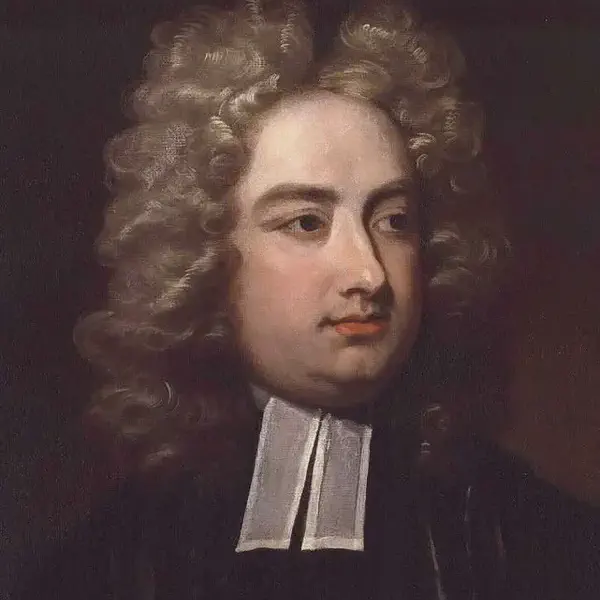
Jonathan Swift, Poet, Satirist and Clergyman 1670, Born in Dublin
November 30, 1667
Jonathan Swift (30 November 1667 – 19 October 1745) was an Anglo-Irish satirist, author, essayist, political pamphleteer (first for the Whigs, then for the Tories), poet, and Anglican cleric was born on November 30, 1667, in Dublin, Ireland. He became Dean of St Patrick’s Cathedral, Dublin, in 1713 hence his common sobriquet, “Dean Swift”.
As a clergyman, Swift held positions in the Church of Ireland, and he became the Dean of St. Patrick’s Cathedral in Dublin in 1713. Throughout his life, he engaged in political and social commentary, expressing his views on the treatment of the Irish by the English government and addressing broader issues of human behavior and morality.
Gulliver’s Travels
He is best known for his satirical works, including “Gulliver’s Travels” and “A Modest Proposal,” which remain influential and widely read to this day.
“Gulliver’s Travels” is a satirical novel written by Jonathan Swift. The full title of the work is “Travels into Several Remote Nations of the World, in Four Parts. By Lemuel Gulliver, First a Surgeon, and then a Captain of Several Ships.” The book was first published in 1726 anonymously, and it has since become one of the most famous works of English literature.
“Gulliver’s Travels” is celebrated for its wit, humor, and incisive social commentary. Swift uses the fantastical settings and creatures encountered by Gulliver to criticize various aspects of 18th-century European society, including politics, science, and human nature. The novel’s enduring popularity is due to its ability to entertain readers with imaginative tales while providing a sharp and often biting critique of the human condition.
The novel is structured as a series of four voyages, each detailing Lemuel Gulliver’s adventures in different imaginary lands. The four parts are as follows:
Lilliput
- In this first voyage, Gulliver finds himself in Lilliput, a land of tiny people. The Lilliputians are about six inches tall, and Gulliver towers over them. The satire in this section addresses issues of politics, power, and human nature.
Brobdingnag
- Gulliver’s second voyage takes him to Brobdingnag, a land of giants. Here, Gulliver is the miniature one, and he encounters colossal beings. This section allows Swift to satirize the flaws and pettiness of human nature when viewed from a different perspective.
Laputa, Balnibarbi, Luggnagg, Glubbdubdrib, and Japan
- Gulliver’s third voyage is a series of adventures in different places, including the flying island of Laputa and the imaginary lands of Balnibarbi, Luggnagg, and Glubbdubdrib. The satire in this section targets the follies of science, government, and the abuse of knowledge.
Houyhnhnms and Yahoos
- In the final voyage, Gulliver arrives in the land of the Houyhnhnms, intelligent and rational horses, and the Yahoos, brutish and irrational human-like creatures. This section explores the theme of reason versus irrationality and satirizes human behavior.
Jonathan Swift’s contributions to literature and satire have left an enduring legacy, and his works continue to be studied and appreciated for their wit, insight, and critique of contemporary society.